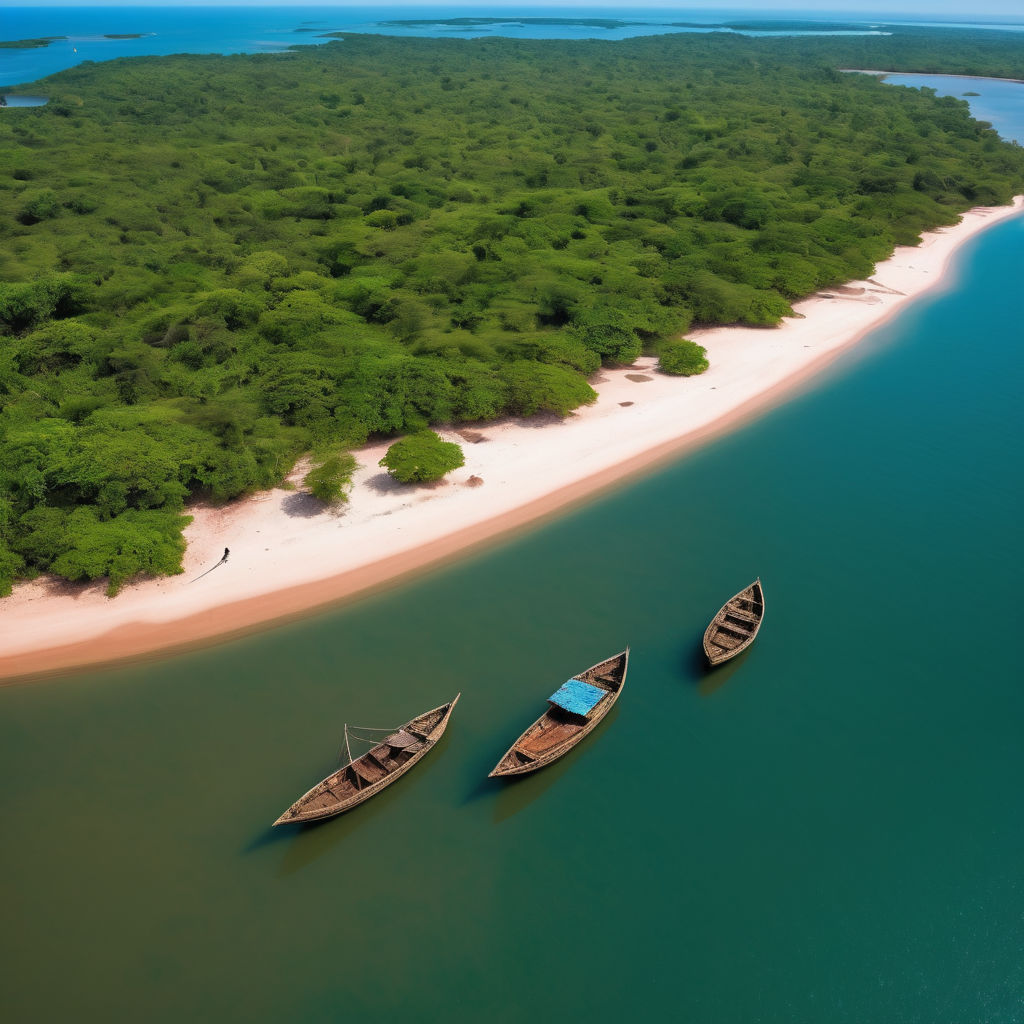Introduction to Guinea-Bissau: A Cultural Mosaic
Discover Guinea-Bissau: Traditions, Music, and Cross-Cultural Harmony

Introduction to Guinea-Bissau
Guinea-Bissau is a small West African country situated along the Atlantic coast, bordered by Senegal to the north and Guinea to the south and east. The country comprises a mainland and the Bijagós archipelago, which consists of about 88 islands, some of which are inhabited. The capital city, Bissau, serves as the political and economic center of the country. Known for its rich cultural heritage, Guinea-Bissau boasts a blend of African traditions, Portuguese colonial influences, and indigenous customs. The cultural landscape of Guinea-Bissau is diverse, with various ethnic groups such as the Balanta, Fula, Manjaco, and Papel contributing to the country's rich traditions. Music and dance play significant roles in the cultural life of Guinea-Bissau, with genres like gumbe reflecting the fusion of African rhythms and Portuguese melodies.
Cross-national and Cross-cultural Understanding
The people of Guinea-Bissau generally exhibit a welcoming and open attitude towards other cultures. This openness is partly due to the country's history of trade and interaction with various civilizations, as well as its colonial past under Portuguese rule. The blend of African and European influences has fostered a culture of acceptance and curiosity about the world. Cultural exchanges are integral to life in Guinea-Bissau. Festivals and events celebrating both local and international traditions are common. The annual Carnival of Bissau, for instance, is a vibrant event that showcases the country's cultural diversity and promotes cross-cultural understanding through music, dance, and parades. This festival often features international participants, fostering cultural exchanges and mutual appreciation. Educational programs in Guinea-Bissau emphasize global awareness and cross-cultural understanding. Schools and universities incorporate multicultural perspectives into their curricula, encouraging students to appreciate and respect diversity. International partnerships with institutions in Portugal, Brazil, and other Lusophone countries facilitate student and faculty exchanges, enriching the educational experience and fostering global connections.
Interactions and Social Dynamics
Typical interactions between Bissau-Guineans and foreigners are characterized by warmth, respect, and a strong sense of community. Social behaviors in Guinea-Bissau reflect a blend of traditional customs and contemporary influences, emphasizing respect for others, hospitality, and communal living. Communication styles in Guinea-Bissau are generally informal and friendly. Portuguese is the official language, but Crioulo (a Portuguese-based creole) is widely spoken and serves as a unifying medium of communication. Various indigenous languages are also spoken, reflecting the country's linguistic diversity. This multilingualism facilitates interactions with tourists and expatriates, making it easier for them to integrate into the local community. Cultural norms in Guinea-Bissau place a strong emphasis on respect for elders and community leaders, communal sharing, and a relaxed approach to time. These norms create a welcoming and inclusive atmosphere for foreigners, who often find it easy to adapt to the local way of life.
Views on Dating and Relationships
Attitudes towards dating and relationships with foreigners in Guinea-Bissau are generally open and accepting. Bissau-Guineans recognize the opportunities for cultural exchange and personal growth that such relationships can bring. However, cultural expectations and traditions do play a significant role in shaping these views. Family involvement is crucial in relationships in Guinea-Bissau, with elders often playing a significant role in the approval process. Traditional customs emphasize respect, patience, and the gradual building of trust in relationships. While modern dating practices influenced by global trends are becoming more common among younger generations, traditional values still hold sway in many communities.
Marriage and Family
Marrying a foreigner in Guinea-Bissau involves navigating both legal and social considerations. Legally, the country has clear regulations governing marriage, including residency requirements and the need for proper documentation. Socially, cross-cultural marriages are generally accepted, though couples may face challenges related to cultural differences and integration. Familial acceptance is a key factor in cross-cultural marriages. Bissau-Guinean families can be protective, and gaining their approval is often essential for the relationship's success. However, the diverse cultural landscape of Guinea-Bissau means that many families are already familiar with and accepting of different cultural backgrounds, which can facilitate smoother integration for foreign spouses. Trends in cross-cultural marriages reflect Guinea-Bissau's open and inclusive society. Many Bissau-Guineans who travel abroad for education or work form relationships with individuals from various cultures, bringing back diverse customs and traditions that enrich the local community.